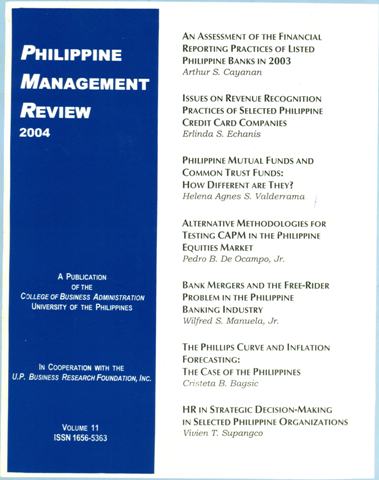Issues on Revenue Recognition Practices of Selected Philippine Credit Card Companies
Abstract
Past due credit card receivables as a ratio of total receivables of Philippine banks have increased to 22.5% in 2004 from 18% in 2003. Furthermore, credit card receivables that are 180 days past due have dramatically increased to 62.1% of total past due accounts in 2004 from 12.3% in 2003. Given the nature of the credit card business, accounts receivables comprise a significant portion of a credit card company's total current assets as well as its total assets. Likewise, interest income and other financing charges are generally major components of a credit card firm's total revenues.
The following accounting practices of credit card firms were examined in this paper: 1) recognition of late payment fees (LPFs) as income; 2) accrual of interets income; and 3) allowance for probable losses.
The impact of the above mentioned accounting practices on the quality of earnings and receivables reported in the financial statements of selected credit card companies for the period 2001-2003 is discussed in this paper. The relevant Philippine and International Accounting Standards and other rules issued by Philippine regulatory agencies were used to ascertain the quality of earnings and assets reported by the credit card firms.


